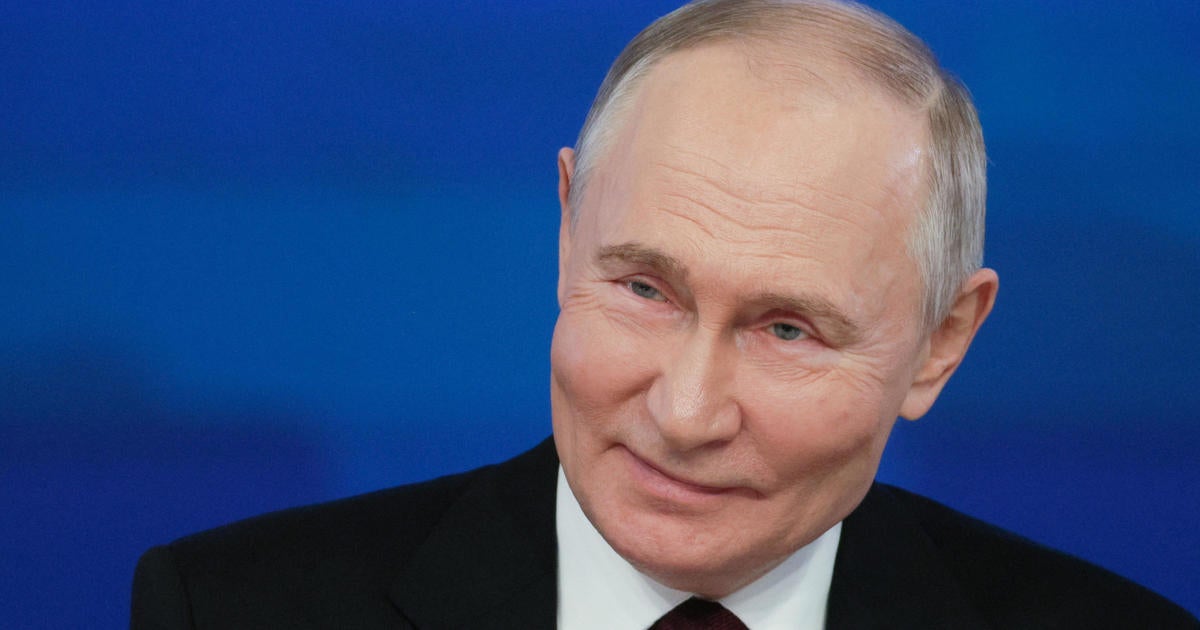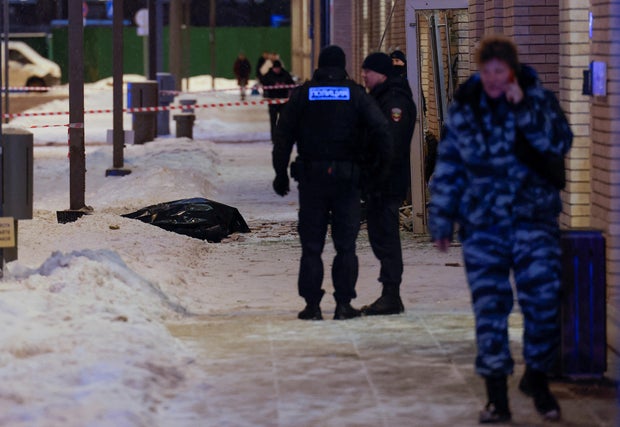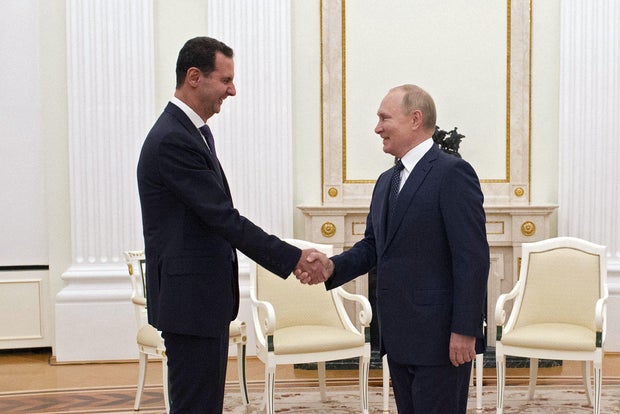Moscow — Russian President Vladimir Putin on Thursday made a rare admission of failings by his powerful security services in connection with the Ukraine-directed assassination of a top general in Moscow. Lieutenant General Igor Kirilov, head of the Russian Army's Chemical and Biological Weapons Department, was killed by a bomb planted in a scooter in Moscow on Tuesday, the most daring killing carried out by Kiev since the beginning of the conflict.
"Our special services are missing these hits. They missed those hits. This means we need to improve this work. We must not allow such very serious blunders to happen," Putin said at his year-end press conference, referring to a series of attacks in Russia on high-ranking Kremlin supporters amid Russia's war in Ukraine.
Ukraine has been linked to previous attacks in Russia, including the August 2022 car bombing. of nationalist Darya Dugina and an April 2023 explosion in a cafe in St. Petersburg that killed senior military correspondent Maxim Fomin, known as Vladlen Tatarsky.
Putin spoke about Kirilov's killing for the first time more than 48 hours after the explosion in a residential area of the Russian capital. Questions have been raised in Moscow about the security protocols for such a high-profile and public figure involved in the military offensive against Ukraine.
Kiev claimed responsibility for the attack, saying explosives were packed into an electric scooter left by the door of an apartment building.
When Kirilov and his assistant left the building, it exploded, killing both of them.
Russia has detained an Uzbek national born in 1995 suspected of carrying out the attack, the Investigative Committee said on Wednesday.
He is said to have said he was "recruited by Ukrainian special forces".
Putin called the attack "terrorism" on Thursday.
A source in Ukraine's SBU security services called Kirilov a "legitimate target" and accused him of being behind the widespread use of banned chemical weapons on the front lines in eastern Ukraine.
Putin says he'll meet Trump "anytime" on Ukraine
Putin said on Thursday he was ready for talks "at any time" with US President-elect Donald Trump, who has touted his ability to reach a peace deal on Ukraine within hours of taking office.
Trump, who will return to the White House in January, has fueled fears in Kiev that he could force Ukraine to accept peace on terms favorable to Moscow.
Holding his annual year-end news conference, the Kremlin leader said his troops had the upper hand on the battlefield but was forced to admit he did not know when Russia would retake the western Kursk region, where Ukrainian troops launched an invasion in August.
The traditional annual question-and-answer sessions, which often go on for hours, are very much a TV show, while also being a rare environment in which he is put on the spot and answers some uncomfortable questions.
Asked about Trump's proposals for a possible peace deal, Putin said he would welcome a meeting with the would-be Republican.
"I don't know when I will see him. He doesn't say anything about it. I haven't spoken to him for more than four years. I'm ready for that, of course. Any time," Putin said.
"If we ever have a meeting with President-elect Trump, I'm sure we'll have a lot to talk about," he said, adding that Russia was ready for "negotiations and compromises."
The Kremlin recently welcomed Trump's sharp criticism of President Biden's decision to allow Kiev to use US-supplied missiles to strike Russian territory — a major escalation in the nearly three-year conflict that Mr. Biden's administration said was imperative by Putin marshaling thousands of North Korean troops to bolster his own ground forces.
Russian troops have been advancing in eastern Ukraine for months, with Putin repeatedly praising their might on the battlefield.
"We are moving towards solving the main goals we set at the beginning of the special military operation," Putin said, using the Russian term for the conflict. "Our boys are fighting heroically. The capabilities of the armed forces are growing."
In November, Moscow's army advanced at its fastest pace in eastern Ukraine since the first month of the 2022 offensive.
But asked by a woman from the Kursk region when residents would be able to return to their homes there after thousands were evacuated from frontline areas amid the Ukrainian offensive, Putin said he could not give a date.
"We will absolutely drive them out. Absolutely. It can't be any other way. But the question of a specific date, I'm sorry, I can't say right now," he admitted.
Putin challenges the West to shoot down a powerful new Russian missile
Putin appeared to repeat his threat to hit Kiev with Russia's powerful new multi-warhead ballistic missile called the Oreshnik. Russia advertises Oreshnik as a hypersonic weapon that is virtually impossible to intercept, but a US Department of Defense official said CBS News it was assessed as a variant of Russia's existing RS-26 missile, an "experimental" intermediate-range ballistic missile (IRBM.
Asked by a military journalist on Thursday whether the weapon had any flaws, Putin proposed a "high-tech duel" between the West and Russia to test his claims that it is impervious to air defenses.
"Let them set some target to hit, let's say in Kyiv. They will concentrate all their air defenses there. And we will strike Oreshnik there and see what happens," Putin suggested.
Toppling Assad in Syria is not a "defeat" for Russia, Putin says
In his first public comments since the fall of former Syrian President Bashar al-AssadPutin rejected claims that his ouster was "defeat" for Russia.
"You want to present what is happening in Syria as a defeat for Russia," Putin said in response to a journalist's question. "I assure you it is not...we have achieved our goals."
Putin said he had not yet met Assad, who fled to Moscow as the rebels closed in on Damascus, but planned to soon.
Putin has come to Assad's aid more than once in the course of Syria's grueling civil war, and he will lose a significant military foothold in the volatile Middle East with his longtime ally now decisively out of power.
Putin says Russia's economy 'stable despite external threats'
On Thursday, Putin was also pressed about the economic difficulties facing Russia - the effects of huge increases in military spending and severe labor shortages caused by the conflict.
He insisted the situation was "stable despite external threats", citing low unemployment and industrial growth.
Asked about skyrocketing inflation, Putin said "inflation is an alarming signal" and that rising food prices such as butter and meat were "unpleasant".
He acknowledged that Western sanctions were also a factor - "although they are not key" - and criticized his country's central bank, saying it should have taken measures beyond raising interest rates to reduce inflation.
Source link



